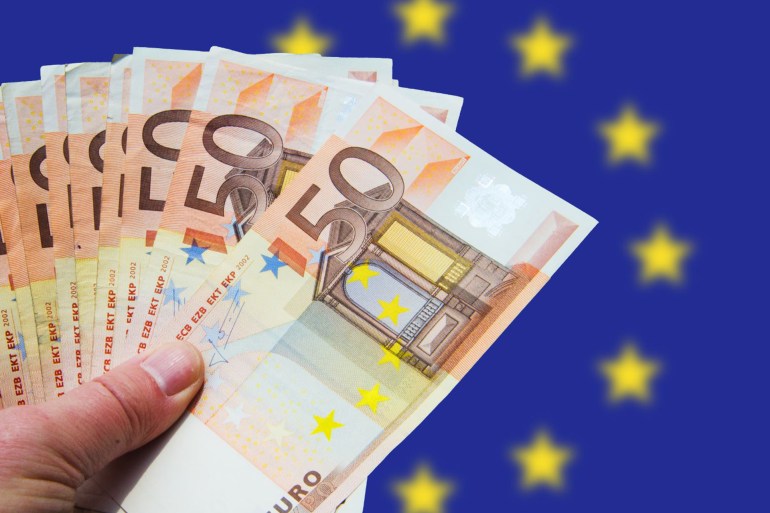The euro has been a common currency among the countries of the European Union since 2002, but 8 member states have not officially adopted it on their territory, namely Denmark, Bulgaria, Croatia, the Czech Republic, Hungary, Poland, Romania and Sweden, as they continued to rely on their national currencies.
The Spanish magazine Elordenmundial said in a report that the 1993 European Union Treaty obligates member states to adopt the euro as an official currency, with the exception of Denmark, which has a clause that enables it to opt out of European agreements for not applying specific points.
And the Scandinavian country was free to choose between the euro and its own currency, preferring to keep the Danish crown currency, as the United Kingdom took advantage of the same item when it was part of the European Union, and kept the pound sterling.
Bulgaria, Croatia, the Czech Republic, Hungary, Poland, Romania and Sweden are not considered part of the eurozone because they fail to meet certain economic and legal requirements, known as the criteria for economic convergence.
Many Eastern European countries joined the European Union in 2004, 2007 and 2013, and the euro was the official currency of the union for a long time, but these countries were not economically harmonious with the rest of the union.
According to the magazine, Sweden's case is different from Eastern European countries, as it was already a member when the euro came into force, but it did not adopt it because its citizens did not agree to change their national currency, which made the Scandinavian country exploit some loopholes in European regulations so as not to be forced to adopt the euro. .
European terms
The EU's economic convergence criteria require that the entry of a new member not endanger the rest of the country, meaning that non-euro member states must keep inflation rates, long-term interest rates, and public deficits below the European minimum.
After these macroeconomic conditions are met, the country has to submit its currency to the European Exchange Rate Mechanism, a pilot stage to verify that it does not depreciate too much against the euro.
The EU economic convergence criteria require that the entry of a new member not endanger the rest of the countries (Shutterstock)
Also, according to EU terms, national central banks must be independent of the public sector and not interfere in monetary policy, otherwise the currency becomes a destabilizing factor for the economy, and the European Central Bank and the European Commission evaluate candidates every two years.
The latest European report released in 2020 concluded that the economic progress of the Group of Seven industrialized countries has been stymied by the pandemic.
Only Sweden and Croatia met the requirements to control inflation rates, while the public debt ratio increased, especially in Romania, and the currencies of the countries that were evaluated, except for the Bulgarian lev, depreciated.
Non-EU countries use the euro
The eight countries that do not adopt the euro do not enjoy the benefits of European economic integration, such as helping to control currency fluctuations, lower exchange costs, or attract foreign investment.
The advantages of adopting the euro are attracting countries outside the European Union, including Andorra, Monaco, San Marino and the Vatican, which have adopted the single European currency through agreements with member states.
Although the euro is not the official currency of Kosovo and Montenegro, it is the currency used by the population there on a daily basis.

